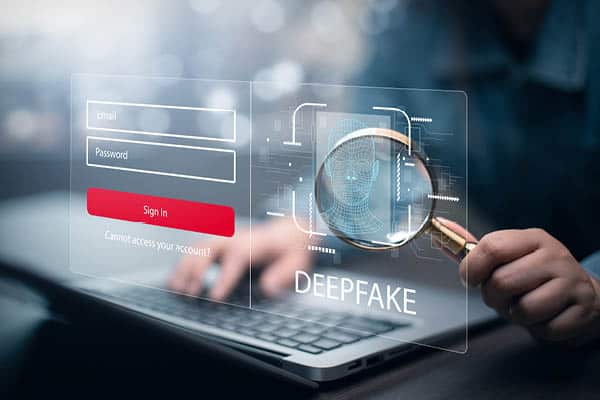Most school districts are ill-equipped to handle “Deepfakes“—artificial intelligence-manipulated video, audio, or images created using someone’s voice or likeness without their permission, according to an Education Week article. Most educators haven’t had training on the potential harms of this technology.
Instances of students using AI tools to generate fake, pornographic images of their classmates and fake videos of their teachers or principals have been reported. Even staff members have allegedly generated fake audio clips of principals or other colleagues.
In a panel discussion during an Education Week K-12 Essentials Forum, two experts—Andrew Buher, the founder and managing director for Opportunity Labs, a nonprofit research, policy, and consulting lab, and Jim Siegl, a senior technologist with the Future of Privacy Forum—discussed what schools need to know about responding to and preventing Deepfakes.
- Schools must protect and discipline students and address significant disruptions to the learning experience, Siegl says. A Deepfake sexually explicit image of a student circulated online among peers obviously disrupts learning and a school immediately must confront the source.
- The ability to create Deepfakes is relatively new, but many schools already have policies and procedures to respond to these incidents, according to the panelists. Student code of conduct policies or procedures focused on cyberbullying and harassment can be used to address Deepfake issues.
- Deepfake incidents are also teachable moments for kids, says Bucher. They can help students and staff understand what Deepfakes are and their impact on people’s lives. This could be part of a broader media literacy initiative, the panelists say.
- Schools can leverage existing federal laws to deal with current incidents. The most recent Title IX regulations specifically call out Deepfakes as an example of sexual harassment. The Family Educational Rights and Privacy Act, or FERPA, dictates what schools can share with law enforcement when determining how to handle a disruptive Deepfake incident.
- Educators need support navigating how federal laws and a few state laws (CA, IL, WA) apply to K-12 schools and what schools can do legally regarding behavior that occurs online and often outside of school hours.
- Schools should educate staff and students about Deepfakes and ensure they have the resources and the skills to understand the challenges around Deepfakes and other AI-generated media, the panelists say.
Education Week





